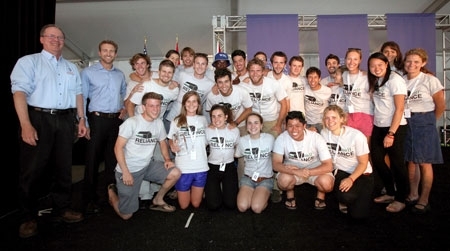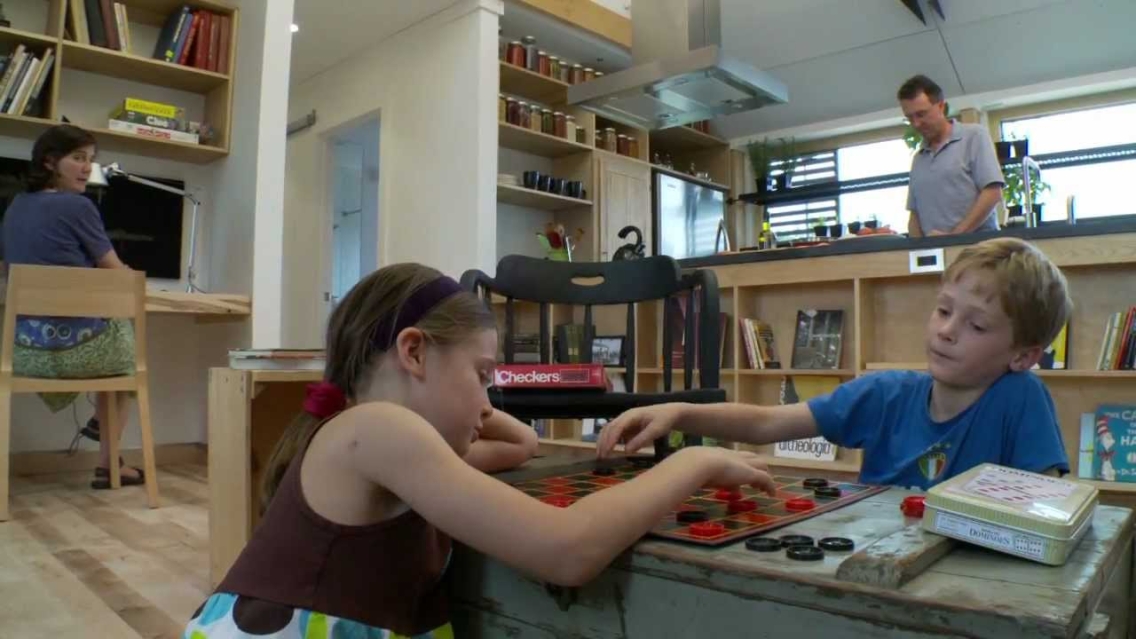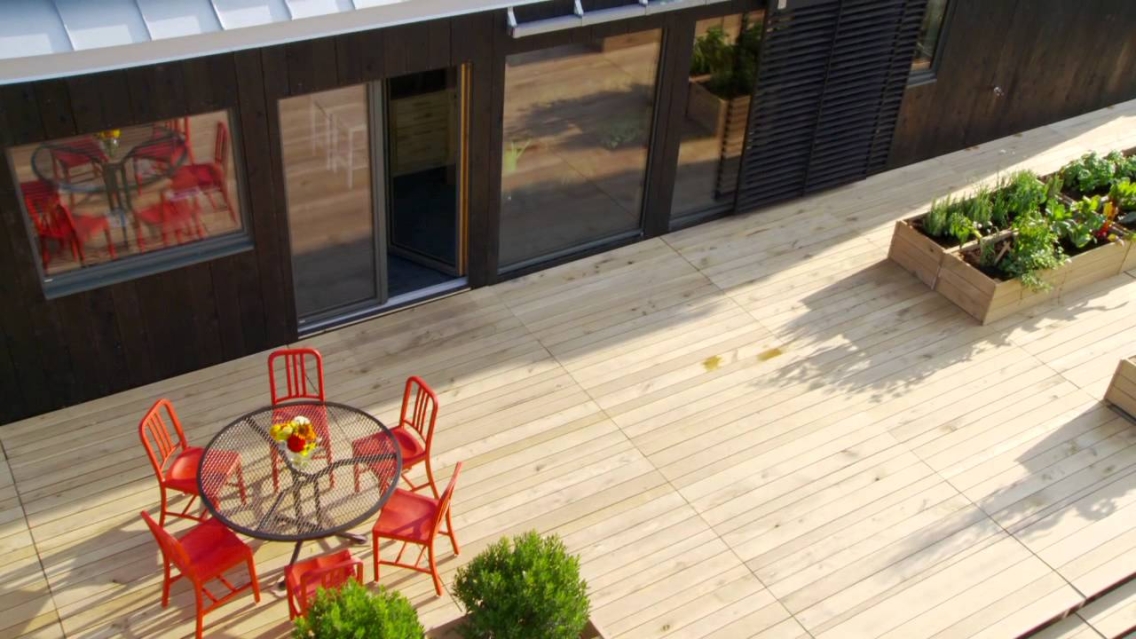Solar Decathlon team finishes in fourth place overall
Error message
No matching provider found.
WASHINGTON, D.C.—Middlebury College’s Solar Decathlon team triumphantly climbed the stage for the second straight day during the final awards ceremony for the Department of Energy’s 2011 Solar Decathlon competition on Saturday, Oct. 1.
After winning the communications category the previous day, Middlebury claimed first place in the coveted market appeal category—a victory that ultimately vaulted them to fourth place in the final standings. They moved past competitors Ohio State and Caltech, and wound up just a few points behind third-place finisher Team New Zealand, from Victoria University in Wellington. The winning team was the University of Maryland, and the runner-up was Purdue University.
“Self-Reliance left the jury very impressed, eclipsing our expectations across the board in livability and marketability,” said Brad Beeson, market appeal juror. “Middlebury College defined its market carefully—a young family of four with a modest income for the region—and demonstrated the fit for that target market with
.”
The team’s sense of accomplishment grew further when Addison Godine ‘11, project manager and team founder, received the Best Decathlete Award at Saturday’s ceremony. Godine was recognized for his active participation in the measured contests, in-depth understanding of day-to-day team standings, and overall embodiment of the innovative spirit of the decathlon.
The 10-day competition ended much the way it began—in a chilling wind, under a gunmetal gray sky and clouds that spit rain all day. Indeed, Washington, which hosts the biennial Solar Decathlon, provided little good news, weather-wise, for the 19 teams struggling to remain “net-zero”—to produce as much electricity through their photovoltaic arrays as they consumed in a variety of daily tasks. Self-Reliance, Middlebury’s “new New England farmhouse,” is engineered to perform net-zero on an annual basis, but with just three sunny days in D.C., the team wound up with an eight-kilowatt-hour deficit, costing them 17 precious points. “Two more hours of sun and it would have been second place,” said team member Carson Cornbrooks ’11.
Take a tour of Self-Reliance |
Middlebury celebrated first place in communications on Friday, Sept. 30, a contest that director Richard King called the Solar Decathlon’s most important in his opening remarks. The jury praised the team for conveying “the best of New England’s architecture” and noted that their “holistic approach to communications was refreshing.” Their public tour guides were “passionate and knowledgeable,” their video “absolutely elegant, understated, and educational,” and their website “crisp and embodied with the spirit of the home.”
Katie Romanov ’11.5, the communications lead for the team who accepted the award, said that even after the house left Middlebury, the team mapped out its floor plan in one of the gyms and practiced leading tours and handling Q&A sessions. “I definitely felt like there was pressure as the liberal arts school,” she said. “We don’t have technical engineering or architecture programs, but we place a lot of emphasis on writing at Middlebury. If there was anything we were supposed to take on and show the world we could do, it was to communicate really well.”
Still, the team went to bed in sixth place on Friday night, wondering if it were even possible to still beat out Ohio State and Caltech and make it into the top five in the final standings. On Saturday afternoon, they got their answer. As Wallace Sanders, a Decathlon volunteer counting Self-Reliance’s weekend visitors—2,501 on Saturday alone—put it, “Middlebury just put the sling stone squarely between the eyes of Goliath.”

“We are all incredibly excited here in Washington D.C.,” the team wrote on its blog a few minutes after their fourth-place finish was confirmed, “and wish everyone could be here to celebrate with us!”
The only liberal arts college in the competition, Middlebury had three outright victories in the 10 Solar Decathlon contests, with the team and their Self-Reliance, finishing first in home entertainment, in addition to their wins in communications and market appeal.
Ashar Nelson, visiting assistant professor of architecture and, along with Andrea Murray, one of Middlebury’s two faculty advisors, stood in the main tent after the closing ceremony, as the crowds filed out and the shock sank in.
“This is the beginning,” he said. “It’s the beginning of all these students changing the future. I’m speechless, really.” Emotion caught hold of his voice, and he added, “ ‘Underdogs’ doesn’t begin to describe how we started this thing.”
The next job for the team: Disassembling Self-Reliance and getting it trucked back to campus, where the building will serve as student housing and an environmental outreach center.
“It was incredible sharing our home with more than 15,000 visitors on the National Mall,” said Romanov. “Now it’s time to bring the house home, where it will continue to be an educational tool that demonstrates the livability and affordability of solar-powered homes.”



